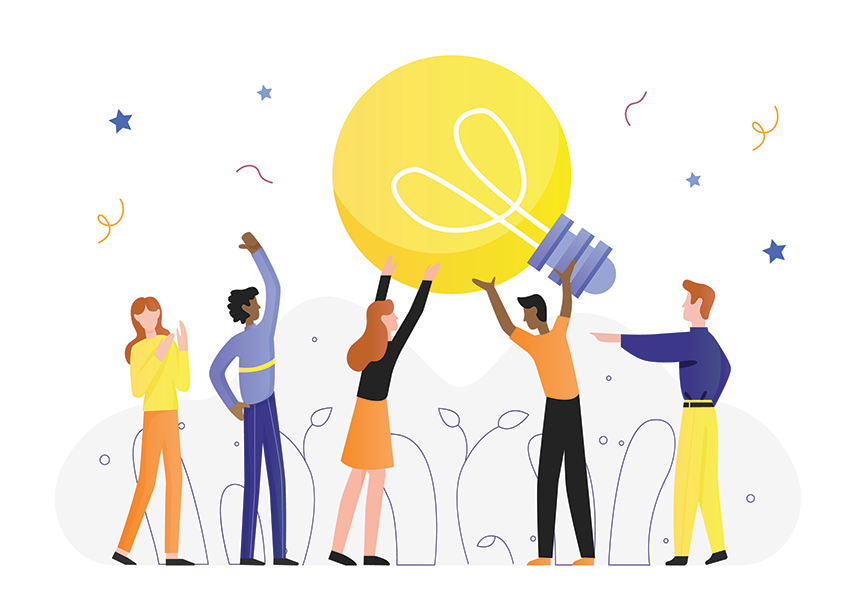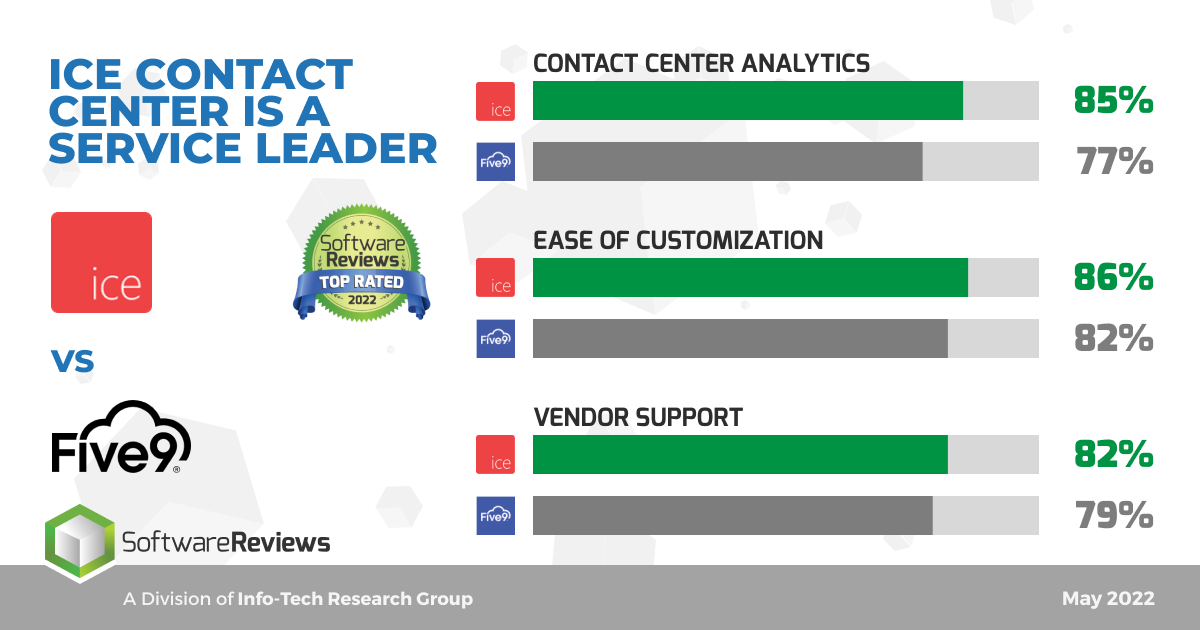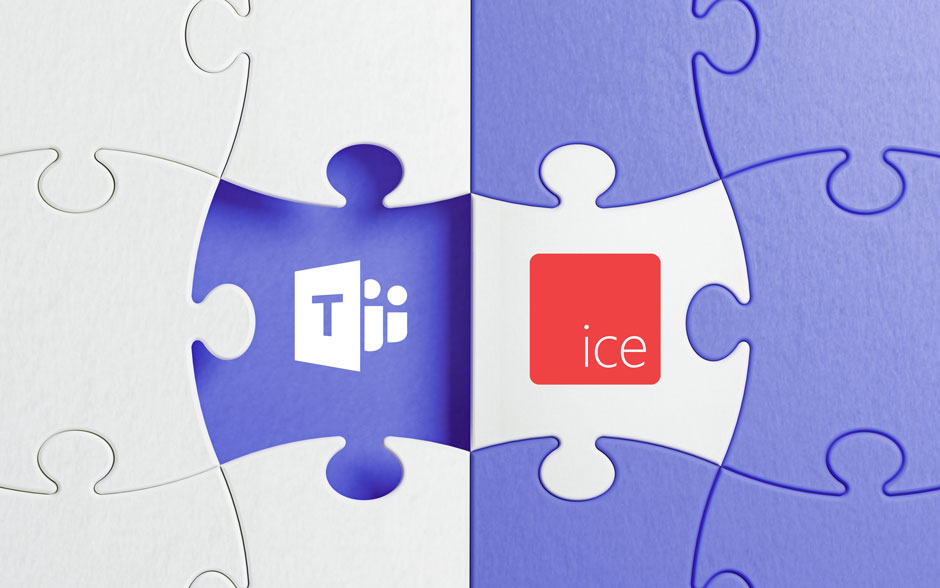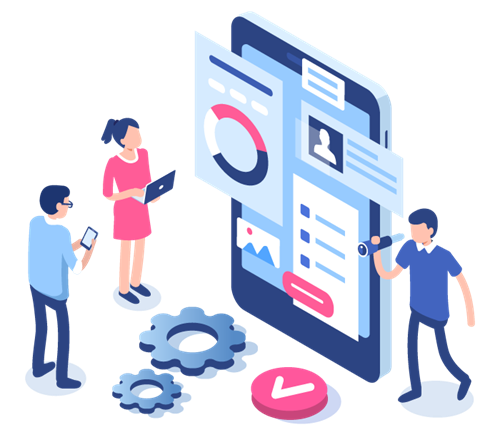The Four Pillars of Customer Service: Knowledge and Insights
by Shaundalee Carvalho | Published On December 23, 2021 | Last Updated March 7, 2024

Excellent customer service is more than just providing quick, accurate responses to customer inquiries. From chatbots to personalized experiences using CRM integrations, there are plenty of ways to take your customer service to the next level.
Customer service is evolving at an incredible rate. It seems like customer expectations are changing every day, and new technologies are emerging to transform the interactions we have with buyers.
To thrive in this landscape, companies need to take a multi-faceted approach to customer service. According to Gartner, a world-leading research and advisory firm, this means focusing on four core pillars of customer service.
In previous blogs, we’ve discussed Getting Connected and Process Orchestration. Today, we’re focusing on the third pillar: Knowledge and Insights.
What is Customer Service?
Customer service is the support companies offer their customers, both before and after they purchase your products or services. The aim of customer service is to ensure every buyer has an efficient and enjoyable experience with your brand.
In today’s world, there’s more to customer service than simply closing tickets and answering phone calls. Modern consumers now expect companies to go above and beyond, delivering proactive and immediate support on any channel, from phone calls to live chat to email.
They also want the experiences they have with companies to be as consistent, intuitive, and personalized as possible. This has led many companies to invest in advanced customer service tools, such as omnichannel contact centers and AI-powered tools for customer journey analysis.
Delivering exceptional customer service is the key to success for every business, no matter what industry you serve. According to Salesforce, 88% of customers say the experience a company provides is as important as its products or services, and 80% of consumers say they’ll abandon a retailer after just a few bad experiences.
What are the Four Pillars of Customer Service?
The four pillars of customer service, identified by Gartner in 2021, are based on the analyst’s insights into the most important technologies and processes in the customer service landscape. They include:
- Getting connected — The ability to connect with customers across multiple channels and deliver omnichannel experiences.
- Process orchestration — Processes that enable organizations to orchestrate and deliver proactive and reactive customer engagement and support strategies, such as chatbots.
- Knowledge and Insights — The management and availability of contextually relevant information to assist in customer interactions.
- Resource Management — Engaging employees and optimizing the workforce through tools such as workforce management solutions.
What is the Third Pillar: Knowledge and Insights?
Gartner’s third pillar of customer service, "Knowledge and Insights", looks at the value that comes from having access to the correct data in the contact center. According to the analyst, optimizing knowledge and insights involves leveraging key technologies that can deliver better insights into your customer.
This includes leveraging customer journey analytics tools, voice of the customer solutions (such as survey tools), and knowledge management solutions for customer service teams. Other tools that can help are customer relationship management (CRM) tools and customer data platforms (CDPs).
For organizations to successfully nurture customer relationships, they need to understand their audience as well as their pain points and goals.
They also need to ensure agents can respond to queries in a timely and efficient manner, by giving them access to essential product information. Agents should also be empowered to deliver personalized customer interactions by drawing insights from customer profiles.
Benefits of the Third Pillar: Knowledge and Insights
Using available knowledge and insights in your customer service initiatives can greatly benefit your customers and your organization. The types of valuable insights that can provide these advantages can come from contact center features directly or from contact center integrations with other tools.
Read on to see how your customers and your organization can benefit from the knowledge and insights provided by various contact center features and capabilities:
- Optimize agent management with real-time monitoring. Supervisors can improve customer and agent experiences by using real-time monitoring tools to optimize agent management. Real-time dashboards that let supervisors view current statuses of various agents, queues, and teams can help them address issues as they arise. By monitoring statistics like average time in queue and more, supervisors can decide what actions should be taken and when. For example, they can see when to allow breaks or reassign agents to different queues, preventing overloaded queues and reducing customer wait times and agent stress levels. They can also set up alerts to know when critical thresholds are being approached, even if they’re not actively watching the dashboard.
- Improve strategic decision-making with historical reporting. While real-time monitoring is helpful for on-the-fly decisions, historical reporting is important for long-term strategic decisions. Using contact center reports to view data over a longer period of time can help predict seasonality, guide decisions on staffing levels, measure the effectiveness of new strategies, and more. Reporting tools ultimately help guide strategic decisions to maximize efficiency and optimize all customer service efforts.
- Enhance training efforts with recordings and transcripts. Contact centers can provide valuable insights and learning opportunities with recordings and transcripts. Supervisors can use these records for agent evaluations, allowing them to manage performance and see where additional training may be required. Recordings and transcripts can even be used as examples in training scenarios, helping new hires to learn best practices. These various use cases can improve customer service by helping to optimize agent performance.
- Help agents reach their maximum potential with evaluations. Supervisors can help agents improve their performance through contact center evaluation tools. By providing an external source of feedback and identifying areas for improvement, supervisors can help agents reach their maximum potential and serve customers better.
- Promote agent learning and enhanced service with artificial intelligence. Modern contact centers can use artificial intelligence (AI) to take customer service to the next level via knowledge and insights. AI tools can automatically perform key phrase and sentiment analysis and recommend next best actions to agents, providing learning opportunities to them and improved service to their customers. AI tools can even provide automated call scoring after a call is completed.
- Break down data silos with PowerBI integrations. Provide more ways to view and analyze data by integrating your contact center with PowerBI. Users can bridge the information between the contact center, CRM, WFM, CSAT, and more, enabling them to create custom dashboards for visualizing data in a user-friendly way.
- Standardize and elevate service with screen pops to knowledge bases. Automatically provide agents with critical information by screen popping information from knowledge bases and CRMs, based on what the agent or caller is saying. This may include scripts for handling certain types of interactions, product information or policies a customer is asking about, and any other internally shared information that can help agents better serve their customers.
- Enable continuous improvement with survey tools. Continuously improve your customer service by collecting regular feedback from your customers. This helps identify strengths and weaknesses in individual agents and the organization as a whole.
Customer Service Tips and Best Practices
Leveraging knowledge and insights in your contact center is an excellent way to enhance your customer service strategy. However, delivering truly phenomenal customer service requires more than just access to the right data.
Here are 3 valuable tips and best practices for improving your customer service.
Offer consistent omnichannel experiences
Customers today expect great experiences across multiple channels. They want to be able to connect with customer service representatives through social media, email, chat, and over the phone. More importantly, they want a consistent and streamlined experience, regardless of which channel they use.
This means that companies need to implement a true “omnichannel” contact center solution, which bridges the gap between different communication channels and databases. An omnichannel contact center can help your agents meet your customers wherever they are, and ensure excellent interactions with an integrated view of all the customer’s data.
Enable collaboration among teams
In order to deliver the best quality of service, agents sometimes need to interact with other business professionals and subject matter experts. Integrating your contact center software with collaboration tools like Microsoft Teams allows you to bridge the gaps between your staff members. This often leads to faster resolution times for customers and greater productivity in the workplace.
What’s more, AI-powered tools like agent assist can now give your representatives live suggestions to improve customer interactions and the customer journey as a whole.
Regularly train your contact center agents
Contact center agents play a crucial role in the success of your company. Providing your agents with the right training will help ensure your agents can thrive in the modern contact center while delivering excellent customer service.
When training your contact center agents, it’s essential to focus on developing both hard and soft skills in agents, such as:
- Interpersonal skills: Contact center agents need exceptional interpersonal skills. They need to communicate effectively, show empathy through active listening, and display emotional intelligence when interacting with customers.
- Product knowledge: Your agents should know everything there is to know about your products and services. Encourage them to study and read up on your products so they can answer questions quickly and accurately.
- Technical expertise: Train your agents on the latest features and functions of your contact center. Show them how to use AI bots and agent assistants, demonstrate how to access analytical and reporting tools, and make sure they’re familiar with your CRM platform.
Mastering the Four Pillars of Customer Service
There are many ways to gather knowledge and insights using your contact center, and even more ways that knowledge and insights can help you optimize your customer service. Be sure to take advantage of all the tools that your contact center offers to truly make the most of knowledge and insights for customer service.
For more information on Gartner’s four pillars of customer service and how contact center features can help you optimize them, check out our past blogs on Getting Connected and Process Orchestration, and watch out for our next blog on Resource Management.
More from our blog
 During the first day of Ignite, Marissa Salazar, Product Marketing Manager for Microsoft Teams announced 7 exciting new Teams features. Most of these are top features requested in the past year by users.
During the first day of Ignite, Marissa Salazar, Product Marketing Manager for Microsoft Teams announced 7 exciting new Teams features. Most of these are top features requested in the past year by users.
 ComputerTalk is pleased to announce that we have been scored as a leader against Five9 in the InfoTech Research Group’s SoftwareReviews.
ComputerTalk is pleased to announce that we have been scored as a leader against Five9 in the InfoTech Research Group’s SoftwareReviews.
 The ice Contact Center already has full support for Microsoft Teams.
Using the Teams client in conjunction with iceBar not only gives agents advanced call controls, but also screen pop and application integrations, visibility into the state...
The ice Contact Center already has full support for Microsoft Teams.
Using the Teams client in conjunction with iceBar not only gives agents advanced call controls, but also screen pop and application integrations, visibility into the state...

